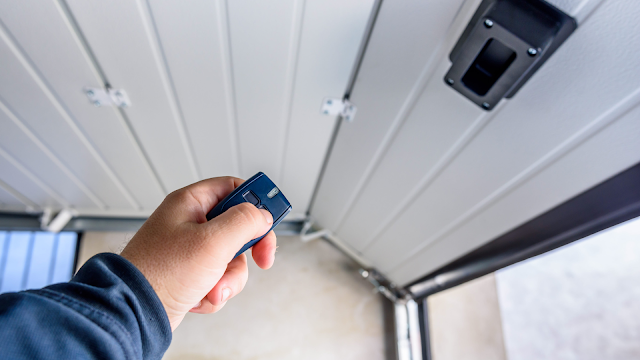Noisy Garage Door: Causes and Solutions
Does a squeaking, clanking, or rumbling sound make you vibrate when you open your garage door? If so, you are probably not the only one annoyed—a loud garage door can annoy your wake-up family members, neighbors, and pets.
But your garage doesn't need to come with an annoying soundtrack. With a little Garage DoorRepair in Flower Mound and an annual garage door tune-up, you can quiet the uproar and enjoy a silent garage door experience.
Causes and solutions
● Check the Bolts, Nuts, and Screws
When you open your garage, you should check the nuts, bolts, and screws if a vibrating sound daunts you. If they are loose, tighten them with a basic wrench-and-socket set. Give time to inspect each one, as a garage door can have more than 100 bolts, nuts, and screws. Make sure that you need to turn right to tighten loose parts.
● Check Your Garage Door Rollers
It is also called wheels; garage door rollers guide your overhead garage door as it travels along the vertical and horizontal track system. If you have deteriorated rollers, you will usually hear high-pitched squeals and grinding sounds.
You can lubricate metal rollers, but don't try this if any portion of your rollers is made from plastic or nylon, as most lubricants stain non-metal parts.
Replacing Overhead
Door in Flower Mound, TX, is a difficult job and is better left to a
professional garage door technician. If you have metal rollers, ask your
experts about elevating them to nylon rollers for a smoother shut and open
experience.
● Look at Your Hinges
It is not unique for garage door hinges to wear out. Hear for loud screeches or grinding to decide if the hinges are your concern. You can also check your hinges for cracks. If a hinge has seized up, the easiest hack is to spray a little WD-40 on it.
However, you may want to replace a hinge, as they can be risky. Never try to repair, remove, or adjust hinges on your own. A technician specializing in Garage Door Repair in Flower Mound can help you safely get back on track with new hinges.
● Inspect Your Springs
A garage door with unbalanced or broken springs usually won't function perfectly and could cause noise problems. Look for an irregular appearance in the door, a door that sticks shut, or a slow open or close speed.
Many garage doors have torsion springs and extension springs. It is OK to look at your springs to see if anything is wrong, but you should never touch a spring. The pressure from springs can cause painful injury, so call a professional to handle these repairs.
● Check the Garage Door Opener
An aged or weak motor may be to blame for that roaring noise. It's also possible that the metal chain connected to the opener is causing noise by clanging against the fence. A quick chain tightening should take care of the problem.
● Consider Your Garage’s Acoustics
Your garage door may be in good shape but is still loud because of your garage's acoustics. If your garage door’s noise is disrupting your household’s calmness, it's worth improving the insulation in your garage to enjoy the smooth sound of silence.
Conclusions:
As you can see, several major components of your garage door depend on timely maintenance by professionals. Solutions typically involve lubricating oils, tightening loose parts, or replacing the garage door parts. While it may look easy, it is suggested that you should call a Garage Door Repair professional to replace hinges, springs, or rollers.




Comments
Post a Comment